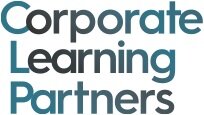Programs and Services
Corporate learning Partners offers:
Coaching (for both performance and disciplinary coaching)
Conflict resolution for teams
Facilitate Workshops
COACHING
Coaching is an effective method for closing the gaps in an employee's performance. It can be executed as discrete one on one coaching or small groups.
A Coaching Plan is developed in consultation with the employee, the employee's manager, sometimes also with the organisation's Human Resource Advisor and the Corporate Learning Partner's Coach. All coaching is evidence based so the organisation can clearly see the employee's performance improvement back on the job. The choices of coaching method may include face to face meetings, on the job, telephone, email and video conferencing, usually it's a mix.
What does disciplinary coaching look like?
Let’s look at how the scenario starts...
A HR Manager call Corporate Learning Partners:
“Nikki, we have an individual who has a bullying claim against them. We have investigated the allegations, and yes, they have been substantiated. They are now on a Performance Improvement Plan. We would like you to come in and develop the coaching development plan, and coach them on our behalf, through this plan. ”
Disciplinary coaching: Corporate Learning Partners process
Corporate Learning Partners has created a robust process for coaching over a ten-week period. The coaching plan is developed with the company, and the employee.
The process involves:
Two, one hour face-to-face meetings
Weekly one-hour coaching calls via telephone or Skype
Support via text messages
Nikki is available to help employees who work on either day/night shifts. She ensures employees receive the right support - for this reason, she only takes on two clients simultaneously.
While most career coaches are happy to coach employees proactively, and groom them for future roles, Nikki enjoys the challenge of working in the uncomfortable space of disciplinary coaching.
She understand that their career is on the line, and she goes on the rollercoaster ride with each employee.
Conflict resolution for teams
What does conflict resolution for teams look like?
Let’s look at how the scenario starts…
A manager calls Corporate Learning Partners
“Nikki, our team has a real crisis here. It’s doing everyone’s head in. We have two people on the team that do not get along. We need your help.”
We all come into the workplace with different expectations (from our past experiences) of what should be happening. With all of the different people that work together, these expectations can be different, the realities are different, and this can sometimes create conflict in teams.
Ideally, the moment you notice that there is some conflict in the workplace (for example, two people are giving each other ‘the eye’), you nip it in the bud. By ignoring it, and sweeping it under the carpet, the conflict festers.
Most conflict resolution providers work on the assumption that to resolve conflict, someone needs to win, and someone needs to lose.
Our approach at Corporate Learning Partners is this: If the team got themselves into this; then all of the team members, as individuals, need to do something to pull themselves out of it.
It’s a multi-layered, transparent approach, starting with coaching each individual, and then bringing the team together.
With conflict, Nikki believes ‘the slower the better’ - it’s about changing and re-sharing the way we do things, and the way individuals think about each other’.
Nikki uses a variety of tools and models to assist teams working through conflict.
DISC profile and behaviour styles
Role clarification and accountability
Tuckman model for stages of team development
Change curve
Iceberg model
Ladder of learning
TRAINING AND WORKSHOP FACILITATION
We specialise in training and coaching in soft skills for employees and people leaders.
Topics include (but are not limited to):
Change Management
Coaching
Communication
Conflict
Delegation
Leadership
Performance Management
Presentation Skills - including pre-start training and toolbox talks for new supervisors
Resilience
Team Building


